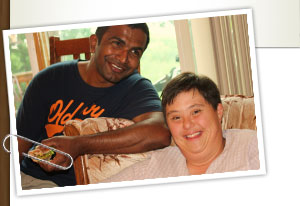General Tips for a Successful Friendship
Choose friendship-building language: You may be formally called a “volunteer,” but the trouble with this word is that it can create a feeling that you are on a different level from the person you would like to develop a friendship with (ie One person is the helper and one gets the help.)
SO—try not to let this kind of thinking dominate in your mind. When you are with your friend, think and use language that suggests that you are equals, and you will soon discover your common humanity.
Think about what you can commit to before you get involved. Go slowly until you find your comfort level. Don’t over-commit and then have to cancel plans. This can be very disappointing.
Think about how much responsibility you want to accept. For instance, would you be willing to look after your friend’s medication. If you don’t want to do this, say so when you are interviewed.
If your new friend has a support person with them, make sure to engage with your friend and not just their support worker. Don’t talk about them to the support workers. (You could ask them a question and glance at the support person to indicate you realize that it may be the support person who will help them answer.)
If your new friend uses a wheelchair or if they are just much shorter than you are, sit down as much as possible when you are with them
Don’t be afraid of the person’s disability. They live with it every day, you don’t have to pretend it is not there. Sometimes a person with a disability will tell you about their disability right away. They may tell you how to help them. If there are things you need to know, ask them. For instance, if you take someone to the swimming pool it will be important to find out if they can swim, how well and if they need help in the change room or getting in and out of the pool.
Use the same tone of voice you use with everyone else! Don’t ever talk down to them.
Try not to speak for your friend when you are out in public.
Be aware of needs, especially with regards to accessibility and extra time when making plans.
If the friendship is not working out well, talk about it. See if changes can be made. Whatever you do, don’t just drop your new friend. This is very hurtful, and often people with disabilities have been hurt in this way many times before.
This document provides a few links to resources providing good advice on communicating with people with disabilities and using People First Language.


